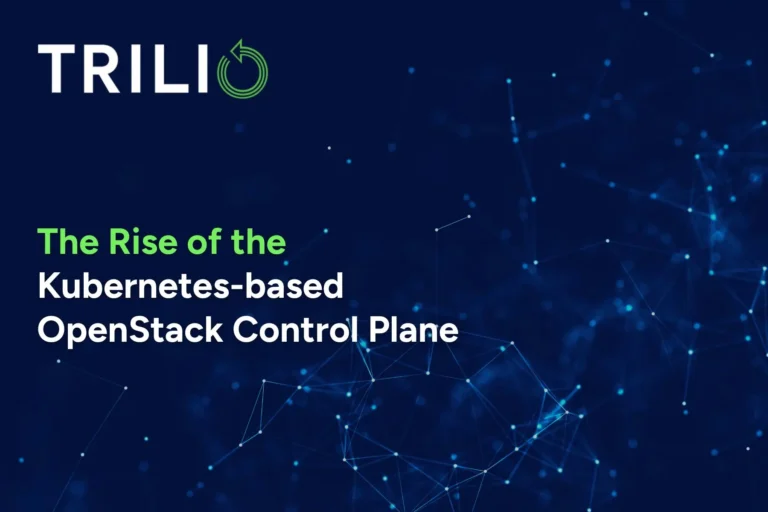The Challenges of Managing Complex Kubernetes Applications Manually
Organizations are increasingly relying on Kubernetes to orchestrate and manage their containerized applications. While Kubernetes offers a powerful framework for deploying and scaling applications, managing complex applications manually can be a daunting, error-prone, and lead to a multitude of security issues.
One of the primary challenges lies in the sheer complexity of managing multiple components across a Kubernetes cluster. Manually deploying, scaling, and updating applications can be time-consuming and tedious, often requiring in-depth knowledge of Kubernetes internals and a high degree of operational expertise.
Furthermore, manual management can lead to inconsistencies in application configurations, increased risk of errors, and difficulty in maintaining application state across deployments and updates.
The lack of automation also hinders the ability to monitor and respond to application health issues effectively. Manual troubleshooting and remediation can be slow and reactive, potentially leading to downtime, performance degradation, loss of revenues, injury to brand reputation, and fines.
As organizations strive to adopt Kubernetes at scale, the challenges of manual application management become even more pronounced. Managing a large number of complex applications and sprawling infrastructure manually can quickly become overwhelming, leading to operational bottlenecks and increased risk of failures.
In light of these challenges, Kubernetes operators emerge as a game-changer in simplifying application management, providing a declarative and automated approach to managing complex applications on Kubernetes.
Kubernetes Operators: Embracing Automation and Simplicity for Application Management
Kubernetes operators offer a transformative approach to application management, addressing the limitations of manual processes and providing a path to simplified, automated, and reliable application lifecycle management. By leveraging a declarative and domain-specific approach, operators empower Kubernetes users to manage complex applications with greater efficiency and control.
Operators ensure consistent and reliable application behavior. This automation not only reduces the time and effort required for application management but also minimizes the risk of human errors and inconsistencies.
Furthermore, operators provide the foundation for continuous application monitoring and health checks. By embedding observability into the operator’s lifecycle management framework, operators enable proactive identification and resolution of application issues, preventing downtime and performance degradation.
The declarative nature of operators simplifies application configuration and management. Operators define the desired state of an application and ensure that the Kubernetes cluster continuously converges towards that state. This approach eliminates the need for intricate configuration scripts and complex manual interventions.
Operators also enhance the extensibility of Kubernetes. By providing a standardized framework for application-specific operations, operators enable the development of custom controllers and extensions that cater to the unique requirements of different applications and environments.
Kubernetes operators revolutionize application management by automating repetitive tasks, providing continuous monitoring, and simplifying configuration management. By embracing operators, organizations can reap the full benefits of Kubernetes, achieving greater agility, reliability, and efficiency in managing their complex applications.
Kubernetes Operators: Embracing Automation and Simplicity for Application Management
Consistent Platform Everywhere
Operators provide a consistent and standardized approach to application management across different environments, whether on-premises, in the cloud, or in hybrid deployments. This consistency simplifies operations and enables seamless application portability, ensuring that applications behave as expected regardless of the underlying infrastructure.
Avoiding Vendor Lock-in
Operators are based on open standards and are not tied to any specific vendor or cloud provider. This open-source approach liberates organizations from vendor lock-in, ensuring that they are not bound to a single platform or service provider:
Data Protection in Geographies Like the EU
Operators enable organizations to deploy applications in specific geographic regions, such as the European Union, to comply with data residency regulations. This level of control ensures that data is stored and processed in accordance with local laws and regulations.
Encryption Strategies
Operators provide the flexibility to implement encryption strategies that align with organizational security policies. This flexibility allows organizations to choose the encryption algorithms and key management solutions that best suit their specific needs.
Freedom of Choice
Operators empower organizations to take control of their Kubernetes environments and manage applications with greater autonomy. This freedom allows organizations to innovate faster, adapt to changing requirements, and avoid being constrained by vendor limitations.
Kubernetes Operators are more than just a tool for application management; they represent a paradigm shift in how organizations approach complex application deployments in the cloud-native era. By embracing operators, businesses can achieve enhanced reliability, efficiency, and freedom, enabling them to thrive in the dynamic and competitive world of software development and delivery.
What if Vendor discontinues the service?
One very big other problem we can have, if we choose a public cloud service, instead of our own operator to manage some application, is if the public cloud decides one day to discontinue that service. It doesn’t need to happen, but it could happen.

I am giving here just two examples, but probably every cloud does this. It makes sense, on the other hand, why keep services that not a lot of people are using?
If a vendor discontinues a service or makes changes that are incompatible with an organization’s needs, operators allow for seamless transition to alternative solutions without disrupting application operations.
What if Vendor wants to raise prices?
Yup. They can. Sometimes they lower prices, sometimes they raise prices. Ok, before I used AWS and Google, for service deprecation, now I am going to use Azure:

Operators enable organizations to avoid being held hostage to price increases from vendors. By leveraging operators and maintaining control over their infrastructure, organizations can ensure predictable costs and avoid unexpected expenses.
Conclusion: Kubernetes Operators, Simplifying Complexity, Enhancing Reliability, and Embracing Freedom of Choice
Kubernetes Operators represent a paradigm shift in application management, transforming the way organizations deploy, manage, and scale complex applications on Kubernetes. By embracing operators, businesses can achieve greater agility, enhance application reliability, and embrace the freedom of choice in their Kubernetes environments. Operators are not just a tool for application management; they are a game-changer that empowers organizations to thrive in the dynamic and competitive world of software development and delivery.
FAQs
How do Kubernetes operators simplify the challenges of managing complex applications?
Kubernetes operators improve complex application management by automating tasks that would otherwise require manual intervention. They introduce a declarative model where you define the desired state of your application, and the operator continually works to maintain that state. This reduces errors, inconsistencies, and the need for deep Kubernetes expertise.
Why is automation crucial for managing Kubernetes applications at scale?
As your Kubernetes deployment grows, manual management becomes increasingly difficult and error-prone. Kubernetes operators automate tasks like scaling, updating, and monitoring applications. This automation is essential for handling a large number of complex applications effectively and minimizing operational bottlenecks.
What advantages do Kubernetes operators offer in terms of consistency and portability?
Kubernetes operators enforce a standardized approach to application management, regardless of whether you’re working in on-premises, cloud, or hybrid environments. This means your applications will behave consistently across different infrastructures, simplifying operations and promoting seamless portability.
How do Kubernetes operators help mitigate vendor lock-in?
Since Kubernetes operators are built on open standards, you’re not tied to a particular cloud provider or vendor. This means if one vendor discontinues a service or changes pricing unexpectedly, you can switch solutions more easily because your operators ensure consistency.
Beyond application management, what other benefits do Kubernetes operators provide?
Kubernetes operators allow customizing Kubernetes for your specific needs. They help meet strict data protection requirements, implement specialized encryption, and innovate more quickly within your Kubernetes environment.




